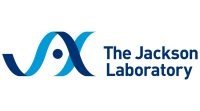About The jackson laboratory
The Jackson Laboratory: Discovering Genomic Solutions for Disease
The Jackson Laboratory is a non-profit organization that has been at the forefront of biomedical research since its inception in 1929. The laboratory's mission is to discover precise genomic solutions for disease and empower the global biomedical community in the shared quest to improve human health.
With over 1,800 employees, The Jackson Laboratory is one of the largest mammalian genetics research facilities in the world. Its headquarters are located in Bar Harbor, Maine, with additional locations in Sacramento, California and Farmington, Connecticut.
The laboratory's research focuses on understanding how genes contribute to disease and developing new treatments based on this knowledge. Its scientists use cutting-edge technologies such as CRISPR/Cas9 gene editing and single-cell sequencing to study diseases ranging from cancer to Alzheimer's.
One of The Jackson Laboratory's most significant contributions to science has been its development of mouse models for human diseases. These mice are genetically engineered to mimic specific human diseases such as cancer or diabetes, allowing researchers to study these conditions more effectively than ever before.
In addition to its groundbreaking research efforts, The Jackson Laboratory also provides a wide range of services and resources for scientists around the world. These include genetic testing services, training programs for researchers at all levels, and an extensive library of mouse strains available for purchase.
The laboratory also collaborates with other organizations across academia and industry through partnerships such as its Cancer Model Development Center (CMDC). This center works with pharmaceutical companies and academic institutions worldwide to develop new cancer therapies using mouse models developed by The Jackson Laboratory.
Overall, The Jackson Laboratory is a vital player in the global effort towards improving human health through genomic research. Its commitment to discovering precise solutions for disease has led it down many exciting paths over the years - from developing innovative mouse models that have revolutionized our understanding of genetics-based illnesses like cancer or diabetes; providing essential resources like genetic testing services or training programs; collaborating with other organizations across academia/industry via partnerships such as CMDC - all while remaining true-to-its-mission statement: empowering biomedical communities worldwide!
